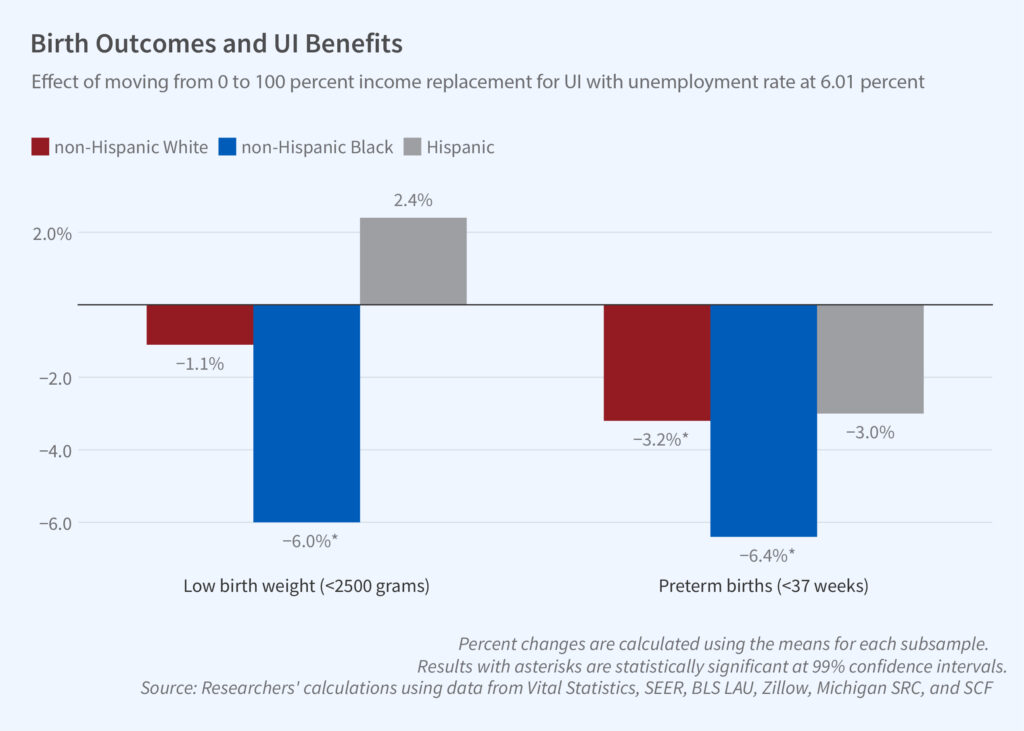
[ad_1]
An NBER paper by Dettling and Kearney (2023) finds that unemployment fee impacts each fertility charges and start outcomes. Utilizing information on start outcomes from Nationwide Middle for Well being Statistics, information on native unemployment from BLS’s Native Space Unemployment Statistics, information on the share of households who’re liquidity-constrained from the Survey of Client Funds.
Utilizing these information, they discover that every share level improve within the native unemployment reduces the fertility fee by ~1% pushed largely by liquidity constraints. Extra beneficiant unemployment insurance coverage attenuates the fertility affect.
Every 10 % improve within the UI alternative fee is related to a discount of about 0.5 % within the unfavorable affect of unemployment on fertility, in order that when UI replaces one hundred pc of misplaced earnings, there isn’t a impact of unemployment charges on fertility charges.
The evaluation finds that infants born throughout instances of excessive unemployment usually tend to be born prematurely but in addition much less prone to be born with a low start weight. The latter consequence, nonetheless, is probably going pushed by choice bias (i.e., those that resolve to have youngsters throughout instances of excessive unemployment usually tend to be comparatively increased earnings). seemingly increased earnings
The authors then study the potential affect of unemployment insurance coverage on start outcomes:
The evaluation finds that extra beneficiant UI mitigates the unfavorable results of unemployment on toddler well being. Absent UI, every 1 share level improve within the unemployment fee would improve the proportion of low-birth-weight infants by 0.17 share factors and the proportion of preterm births by 0.43 share factors. A UI alternative fee of about 75 % would totally offset these unfavorable results. On common, this could require changing $383 per week, or $17,000 over a full-term 44-week being pregnant. The price of start hospitalization for a Medicaid-insured preterm toddler is $42,000 increased than for a full-term toddler, implying that the web social return to offering such UI advantages can be constructive.

The NBER Digest abstract is right here and the total article right here.
[ad_2]